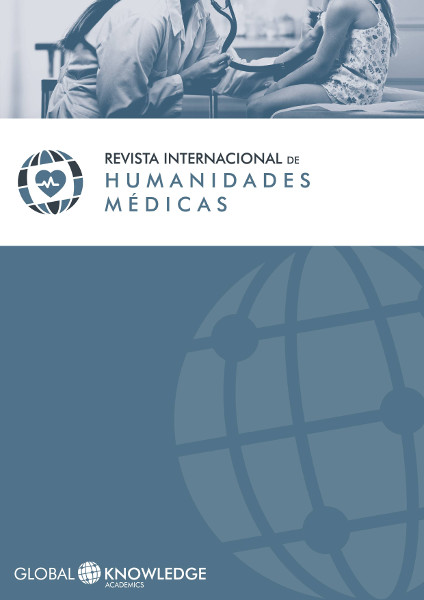Notes on How to Consider The Relationship Between Medicine and Public Authorites
DOI:
https://doi.org/10.37467/gka-revmedica.v1.1299Keywords:
Health System, Liberal State, Welfare State, Clinical Relationship, Health PolicyAbstract
In order to examine relations between political authorities and the health system we need a historical view that allows us to understand the drift of the ever expanding health system under liberal systems and the introduction of new concepts such as the right to health under so-called Welfare States. State appropriation of citizens’ health, through health systems, changes the paradigm of the doctor-patient relationship as understood traditionally and historically, and makes us cautious about what may be a threat to our individual liberties, with a disproportionate health service and states that intervene directly in the lives of their citizens not only as regards the law but also their health and bodies. This all needs to be analyzed unreservedly and we must be careful that the right to health does not become an instrument of power and control by states over citizens, thus diminishing our liberties.
Global Statistics ℹ️
|
88
Views
|
20
Downloads
|
|
108
Total
|
|
References
Blake, M. (2010). “Dirty Medicine. How medical supply behemoths stick it to the little guy, making America’s health care system more dangerous and expensive”. Washington Monthly, <http://www.washingtonmonthly.com/features/2010/1007.blake.html> (Consultado el 8 de enero de 2013).
Bell, D. (1977). Las contradicciones culturales del capitalism. Madrid: Alianza.
Berlin, I. (1992). El fuste torcido de la humanidad. Capítulos de historia de las ideas. Barcelona: Península.
Foucault, M. (1966). El nacimiento de la clínica: una arqueología de la mirada médica, México, Siglo XXI.
Foucault, M. (1976). “La crisis de la medicina o la crisis de la antimedicina”, Educación médica y salud 10(2), 152-70.
Foucault, M. (2001). Dits et Écrits, (1976-1988). París: Gallimard [2 volúmenes].
Hunter, D. y Parsons, T. (1976). “The Relations between Biological and Socio-Cultural Theory”, Bulletin of the American Academy of Arts and Sciences 29, 14-9.
Illich, I. (1974). “The political Uses of Natural Death”. The Hastings Center Studies 2(1), 3-20.
Illich, I. (1975). Medical Nemesis. The Expropriation of Health. London: Calder & Boyars [Trad. Esp. (1975): Némesis médica: la expropiación de la salud, Barcelona, Barral Editores].
Jonas, H. (1997). Técnica, medicina y ética. Barcelona: Paidós.
Locke, J. (1960). Two Treatises of Government . New York: Cambridge University Press [Ed. De Peter Laslett].
Mainetti, J. A. (2006). “La medicalización de la vida”. Electroneurobiología 14(3), 71-89, <http://electroneubio.secyt.gov.ar/index2.htm>.
Mann, J. M. (1997). “Public Health, Ethics and Human Rights”. The Hastings Center Studies 27(3), 6-13.
McCullough y Laurence B. (1979): “Rights, Health Care, and Public policy”, The Journal of Medicine and Philosophy 4 (2), 204-15.
Oakeshott, M. (2008). Moral y política en la Europa moderna. Madrid: Síntesis.
Parsons, T. (1975). “The Sick Role and the Role of the Physician reconsidered”. The Milbank Memorial Fund Quarterly. Health and Society 53(3), 257-78.
Parsons, T. (1984). “Estructura social y proceso dinámico: el caso de la práctica médica moderna”. En: Parsons, T., El sistema social (pp. 275-306). Madrid: Alianza.
Porter, Roy (1985). “The Patient’s View: Doing Medical History from below”. Theory and Society 14(2), 175-98.
Porter, Roy (1998). The Greatest Benefit to Mankind. A Medical History of Humanity. New York: W. Norton & Company.
Porter, Roy (2002). Blood and Guts. A Short History of Medicine. Nueva York: W. W. Norton & Company.
Turner, B. S. (1995). Medical Power and Social Knowledge , (2ª ed.). London: Sage.
Downloads
Published
How to Cite
Issue
Section
License
Those authors who publish in this journal accept the following terms:
- Authors will keep the moral right of the work and they will transfer the commercial rights.
- After 1 year from publication, the work shall thereafter be open access online on our website, but will retain copyright.
- In the event that the authors wish to assign an Creative Commons (CC) license, they may request it by writing to administracion@edulab.es









